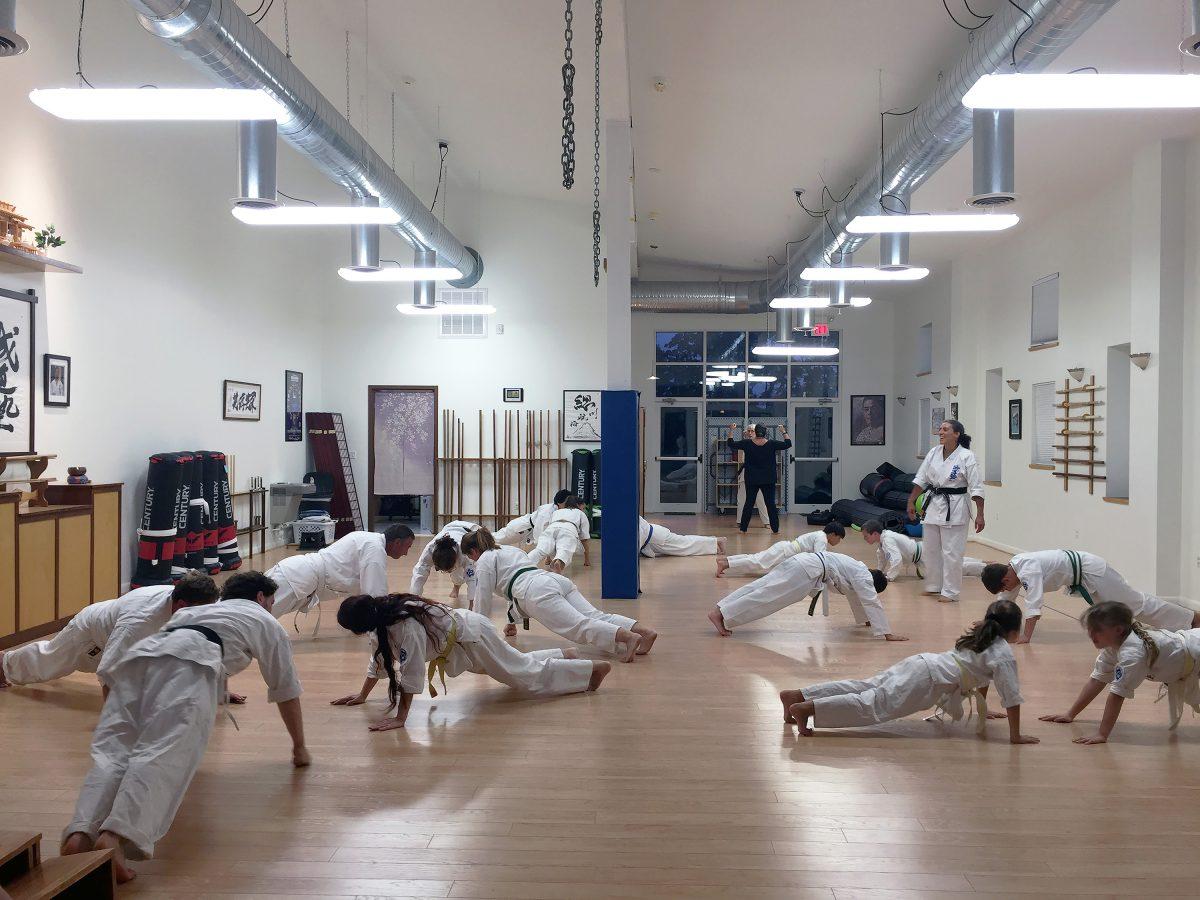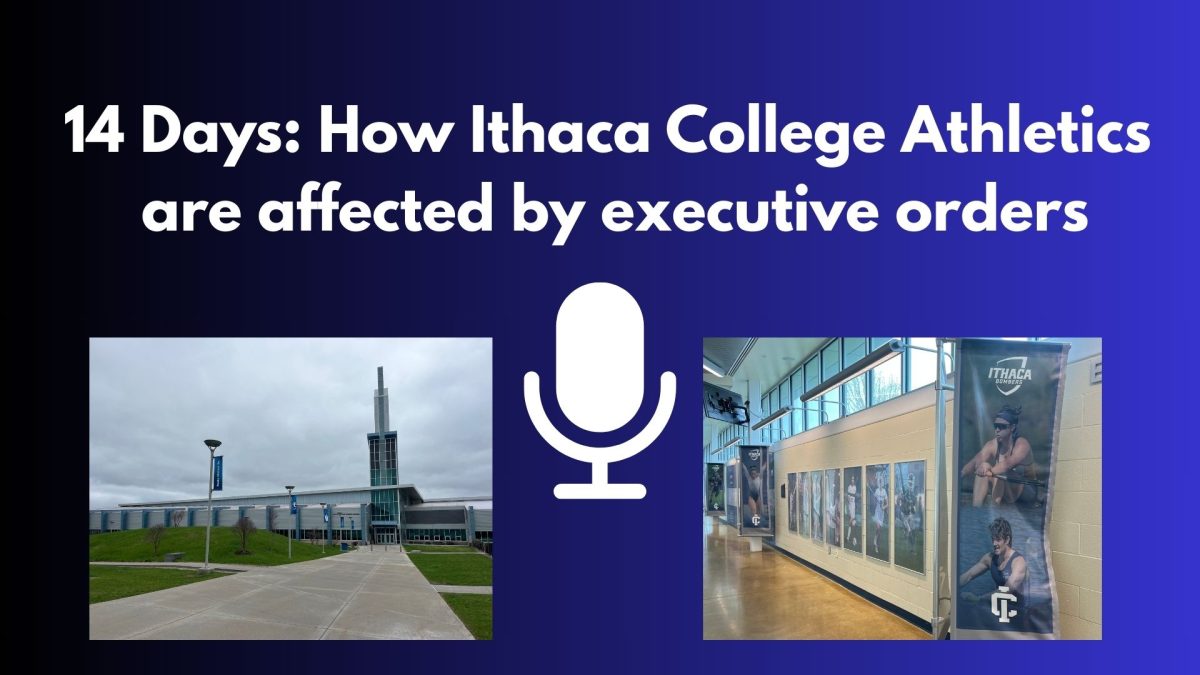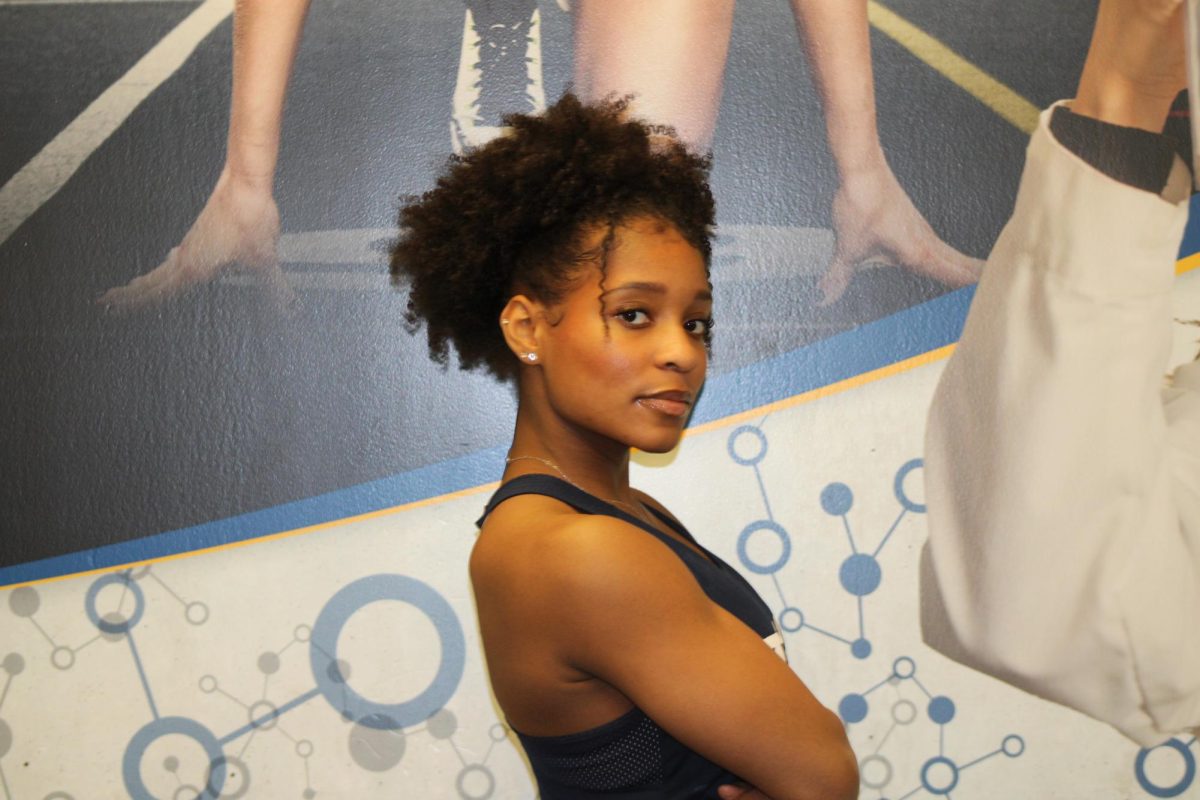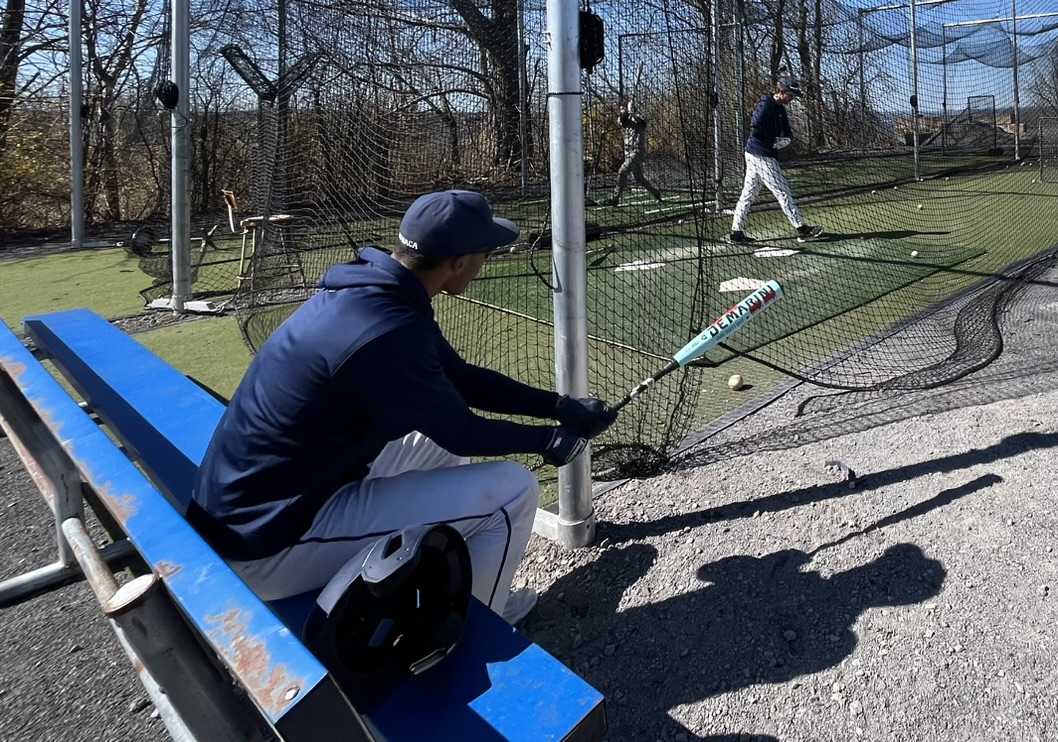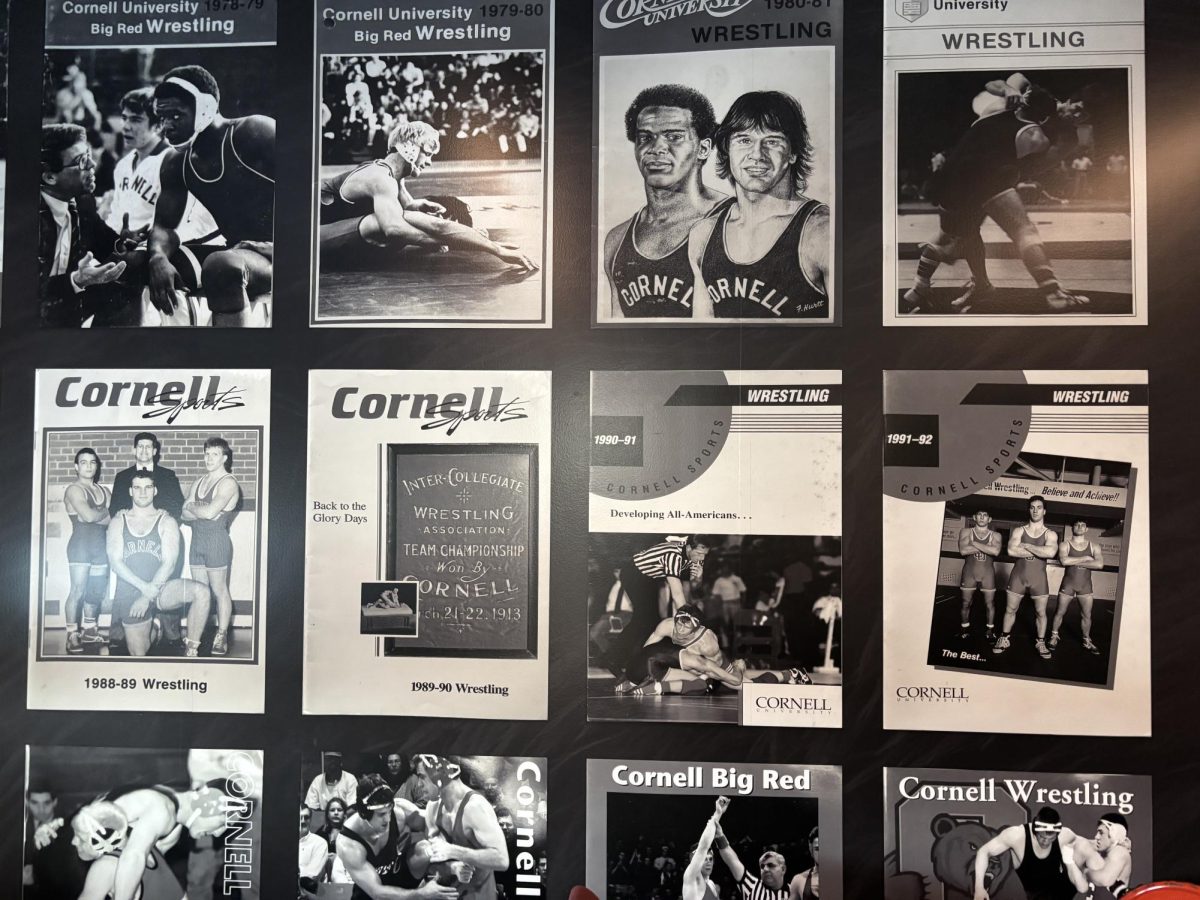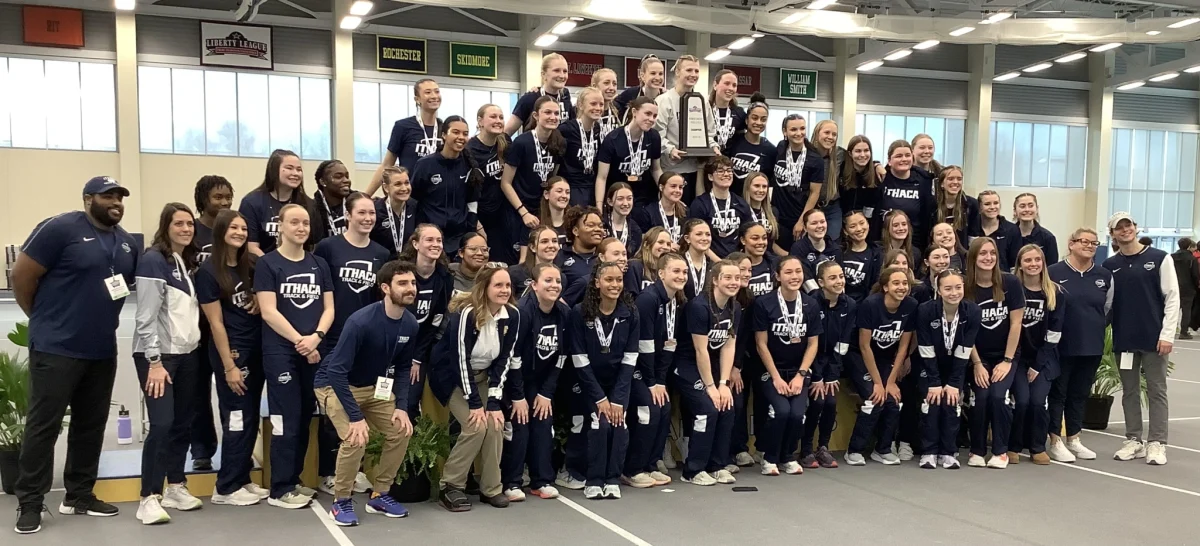
Gail Lajoie, Kyoshi and co-owner of Cayuga Lake Seido Karate in Lansing, New York, moved around the dojo as she observed her students practicing various kicks and punches. Kyoshi is an honorific title for a senior level instructor, which entails receiving a fifth-degree black belt.
“I was a teacher by profession before I even started karate, so it has really been a natural progression for me,” Lajoie said. “I have always loved teaching, and there’s nothing better than being able to teach what you love. I love to watch my students grow and change.”
Lajoie’s career in education has spanned 23 years. She is currently an instructor of karate and personal defense at Ithaca College and works in Instructional Technology Integration at the Greater Southern Tier Boards of Cooperative Educational Services. She has worked as a teacher and in a staff development and support role for other teachers.
Lajoie was introduced to karate at the age of 25 when she was invited to observe her friend Robin McColley’s first belt test. Lajoie signed up to begin training three days later. McColley and Lajoie now co-own Cayuga Lake Seido Karate. McColley and Lajoie both achieved the title of Kyoshi in 2012.

“She is a wonderful teacher, she really loves karate and is passionate about karate,” McColley said of Lajoie. “She can break down the skills to make sure that other people learn.”
The pair started the organization in 2006 at the Lansing Elementary School through the recreation department. They moved into the current facility in 2012 and celebrated the organization’s 10th anniversary in Jan. 2016. The Lansing dojo hosts around 100 students, but over 200 students learn from McColley and Lajoie through their partner programs at Ithaca College and Trumansburg, McColley said.

There are many styles of karate. Many masters of karate started their own dojos and created their own styles after reaching a certain level of training, usually an eighth-degree black belt. However, there are said to be four pillars of karate from which all other forms are derived. The four are Shotokan, Goju-Ryu, Wado-Ryu and Shiti-Ryu. Seido Karate was star
ted by Kaicho Nakamura and celebrated its 30th anniversary in 2006
Lajoie has been a direct student of Nakamura’s since 2003. She travels to headquarters in New York City regularly to train with Nakamura and his son, Nidaime Akira Nakamura.
“Truthfully, I never looked into any other martial arts or styles of karate before choosing Seido,” Lajoie said. “Knowing what I know today, I’d like to think I would choose Seido all over again for the reasons that make it special to me. While we train hard and occasionally compete in tournaments, competition and brute strength are not the focus.”
Seido Karate has an emphasis on mindfulness and giving back to others and the community. Although the dojo features a replica of a shinto shrine, Lajoie said none of their practice reflects any specific set of spiritual beliefs. Seido karate is open to people of various ages and abilities. The oldest student at the Cayuga dojo is 78 years old.

“I like that Seido is a place where anyone can come to train at their own pace, facing and conquering their own challenges in their own time,” Lajoie said. “I also like that we focus a lot on building ourselves from the inside — developing a strong spirit and a magnanimous heart — and labor together to reduce ego and self-centeredness.”
Amelia Massi has been a student of Lajoie’s for nine years. She is an instructor, or Senpai, and earned her second-degree black belt in 2015. Massi teaches the after-school program at the dojo.
“I will say that aside from marrying my husband and having my three children, it’s the next best decision I’ve ever made, joining Seido Karate and having Kyoshi Gail and Kyoshi Robin as instructors,” Massi said. “They have so much positive energy.”
Although the dojo is located in Lansing, it draws students from Ithaca, Dryden and Trumansburg as well, Massi said.
Classes feature students of elementary school age training alongside adults. The students are grouped by experience level and practice different techniques. Lajoie said she enjoys watching her students progress.
“Everyone ends up doing things they thought they could never do,” Lajoie said. “That process usually manifests itsel through a physical challenge.”
Lajoie said karate also promotes personal growth.
“There’s nothing better than seeing that kind of triumph turn into a triumph in someone’s personal life,” she said. “Physical strength and perseverance turn into strength of spirit to face all kinds of challenges.”

Lajoie began training in Seido Karate in 1993 and achieved her first-degree black belt three years later. Sinc
e then, she has traveled across the United States as well as to South Africa and Japan to participate in clinics, tournaments and classes.
“When I began, I had no idea how karate would affect my life,” Lajoie said. “I just thought it looked like it would be a neat experience and a good workout. I could never have imagined all those years ago that someday I would be a black belt, or a teacher with her own school.”

